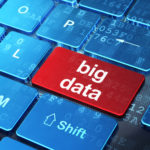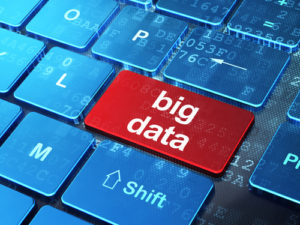The massive collection of data in higher education will never produce a single, infallible formula for success, no matter how much students clamor for such a miracle algorithm.

That, along with other harsh realities of data collection and analysis on college campuses, was discussed during the “Allure of Big Data” session at the EDUCAUSE 2013 conference in Anaheim, Calif., where campus technologists from across the world gathered to discuss trends in educational technology.
A panel of Big Data experts expressed concern about the sky-high expectations for analytics in higher education, as some have pointed to Big Data as a transformational way of understanding teaching and learning.
Big Data may be transformational, the panelists said, but expecting that transformation to be immediate is unfair to campus technologists charged with compiling the mass amounts of information that can help steer students toward a degree.
“There’s no single algorithm that is going to predict everybody or a set of variables that is going to be able to predict everything,” said EDUCAUSE panelist Sherry Woosley, associate director of institutional effectiveness at Ball State University. “It’s complicated work. It’s messy, which is not what they taught me in stats class.”
Mark Milliron, co-founder and chief learning officer for Civitas Learning, a Big Data-focused start-up, said that many tech-savvy college students are coming to campus with the expectation that schools will be able to prescribe a set of courses.
“Students are asking for direction based [on analytics],” he said, just as Amazon suggests certain books, movies, and music to customers based on their profiles, likes, dislikes, and history of Amazon purchases.
See page 2 for why campus technologists should “under-promise” in Big Data analysis…
The challenges of Big Data extend to educators, many of whom aren’t sure which data points to focus on when evaluating student performance. Even with a fairly limited number of data points, Woosley said, educators sometimes struggle to leverage data to optimize learning.
“The best analytical models, if they’re not used properly, have no impact,” she said. “The simpler I can make [the data], the more likely they are to pay attention.”
That runs against the grain of how technologists perceive Big Data, since many technologists want as much information as possible, which can then be distilled, Woosley said.
Troy Williams, president and general manager of Macmillan New Ventures and a panelist at the EDUCAUSE Big Data session, said Big Data advocates should be wary of selling analytics as a panacea for higher education. Williams said the rise of Big Data in education has come with a spate of “over promising” on college campuses.
“We have to set peoples expectations and tell them that it could take some time” for the data to show results. “We should focus on setting a realistic timeline and attainable timelines … to under-promise and over-deliver.”
- Research: Social media has negative impact on academic performance - April 2, 2020
- Number 1: Social media has negative impact on academic performance - December 31, 2014
- 6 reasons campus networks must change - September 30, 2014

